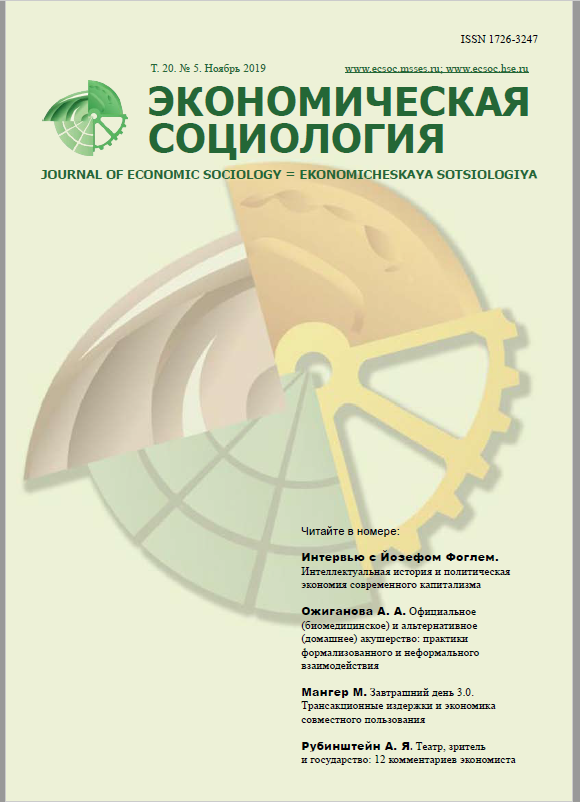Paradoxes Legality—Illegality—Legitimacy Intersections in the Architecture of Markets
Book Review: Beckert, J, Dewey M. (eds) (2017) The Architecture of Illegal Markets. Towards an Economic Sociology of Illegality in the Economy, Oxford: Oxford University Press. 304 p.
Abstract
Boundaries of illegality in markets for goods and services are blurring. These boundaries are associated with the development of capitalist relations. The illegality becomes pervasive and gains increasingly sophisticated links with formal legality and social legitimacy. At the same time, the role of the state in the illegal market exchanges is intensified by preserving the institutional gap between formal and informal rules. In this respect, the book The Architecture of Illegal Markets. Towards an Economic Sociology of Illegality in the Economy develops a non-trivial research task for the modern economic-sociological paradigm. Its authors contest the existence of boundaries between the phenomena of legality and legitimacy, including mechanisms for compliance with informal rules within formal institutions that regulate illegal markets. The purpose of this review is to demonstrate the paradoxical interdiction of legality and legitimacy that the book’s authors describe, using the metaphor of interfaces that build the essence of illegal market architectures. The review reference points are the most important topics that the authors of the conference proceedings mention, such as the types and components of illegality in the markets of goods and services; the question of the boundaries between legality, illegality, and legitimacy; and the role of the state in the development of illegality in the markets. This text concludes that the book draws the landscape of illegality, which is viewed in close association with the phenomena of legality and legitimacy. The authors’ research goes beyond the phenomenon of illegality and expands the understanding of the informal economy constituents.













